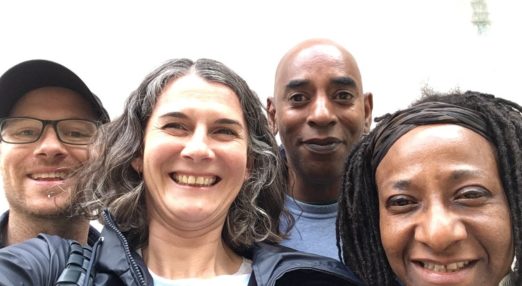Advance Statements for Black African and Caribbean People
Creating opportunities for Black service users to make choices about their care.
We all want to be able to make choices about how we are protected, treated, and cared for. People who are detained under the Mental Health Act (also known as being ‘sectioned’) are no exception – and while their capacity to make decisions may be temporarily compromised during a crisis, having an advance statement prepared is a helpful way to ensure their voice is still heard.
When someone is experiencing a mental health crisis, they may feel extremely frightened or distressed. Their behaviour can be erratic and, in some cases, it may be necessary to restrain them. Whatever happens, they still have a right to be kept safe, treated with dignity, and receive the care they need from the services that are designed to protect them.
Structural inequalities at every level of British society contribute to the shocking statistic that Black British service users are four times more likely than their white counterparts to be detained under the Mental Health Act. They are also more likely to be restrained using physical force, and less likely to receive the care and support they need – so have a higher risk of experiencing repeated admissions to hospital, and poorer long-term health outcomes.
Creating a co-designed and accessible process
In 2021/22, we funded £249,894 into a research study to create a workable process for Black mental health service users to complete and use advance statements, and to encourage and facilitate their use within all South London and Maudsley services.
An advance statement is a document that allows a person to have a say in how they wish to be treated in the future if they become unwell or experience a crisis. The document can be made with the help of family, friends, mental health professionals and/or independent advocates.
Having an advance statement prepared – and crucially, having access to mental health staff who are trained and experienced in using one – can counteract some of the inequalities that Black service users face. But the accessibility of existing information and support about advance statements is often limited by systematic, cultural and socioeconomic barriers.
The Advance Statements for Black People (AdStAC) project, led by Dr Shubulade (Lade) Smith CBE, Clinical Director for the Forensic Service at South London and Maudsley, and Dr Claire Henderson from the IoPPN at King’s College London, aims to overcome these barriers by working directly with Black service users to co-design a process for creating and using these documents that is workable for all service users, carers, and staff.
I don’t want my son to be sectioned. I want to keep him well, so an advance statement is what we need.
Breaking down barriers
The AdStAC project includes a series of workshops with Black people who have previously been sectioned under the Mental Health Act, along with their carers and mental health service staff. Together, they will look at what processes and resources are already in place to help people create and use advance statements and identify where barriers exist.
The findings from the workshops will be used to create an improved range of accessible, evidence-based support materials and training resources, to both encourage people to create advance statements, and make it easier for staff to use and follow them in practice.
Plan, Do, Study, Act
During 2021/22, two advisory groups were established for the project, along with a steering committee of academics and lay experts in policy and advocacy to oversee the research.
Recommendations from these advisory groups will be included in the resources, which will be produced using a ‘Plan, Do, Study, Act’ approach to allow regular opportunities for review.
With the UK Government having previously committed to introducing new legislation to support the use of advance statements within mental health services, this project will help to ensure that any forthcoming transition is both smooth and equitable for everyone involved.
AdStAC has been going really well. We’ve had a high level of engagement from staff, Black service users, carers/supporters and key people within the Trust who have provided insight and recommendations on how to ensure that advance choice documents can work effectively when they are implemented. We’re looking forward to taking on the next phase to use the recommendations and advice that have been provided.”
Resources and further information
Paper: People, process, and power: implementing advance choice documents for Black people in mental healthcare – Cambridge University Press
Further information
Empowering Black voices in mental health care: the advance choice journey – King’s College London
Something you may be interested in
-

Patient and Carer Race Equality Framework (PCREF)
An approach to anti-racism within mental health trusts in England and the first-ever national anti-racism framework for the NHS.
Read more
-

Usemi Racial Trauma Clinic
A specialist therapy service for people of colour delivered by Lambeth and Southwark Mind
Read more
